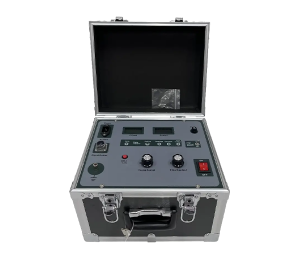 English
English



-
 Afrikaans
Afrikaans -
 Albanian
Albanian -
 Amharic
Amharic -
 Arabic
Arabic -
 Armenian
Armenian -
 Azerbaijani
Azerbaijani -
 Basque
Basque -
 Belarusian
Belarusian -
 Bengali
Bengali -
 Bosnian
Bosnian -
 Bulgarian
Bulgarian -
 Catalan
Catalan -
 Cebuano
Cebuano -
 China
China -
 China (Taiwan)
China (Taiwan) -
 Corsican
Corsican -
 Croatian
Croatian -
 Czech
Czech -
 Danish
Danish -
 Dutch
Dutch -
 English
English -
 Esperanto
Esperanto -
 Estonian
Estonian -
 Finnish
Finnish -
 French
French -
 Frisian
Frisian -
 Galician
Galician -
 Georgian
Georgian -
 German
German -
 Greek
Greek -
 Gujarati
Gujarati -
 Haitian Creole
Haitian Creole -
 hausa
hausa -
 hawaiian
hawaiian -
 Hebrew
Hebrew -
 Hindi
Hindi -
 Miao
Miao -
 Hungarian
Hungarian -
 Icelandic
Icelandic -
 igbo
igbo -
 Indonesian
Indonesian -
 irish
irish -
 Italian
Italian -
 Japanese
Japanese -
 Javanese
Javanese -
 Kannada
Kannada -
 kazakh
kazakh -
 Khmer
Khmer -
 Rwandese
Rwandese -
 Korean
Korean -
 Kurdish
Kurdish -
 Kyrgyz
Kyrgyz -
 Lao
Lao -
 Latin
Latin -
 Latvian
Latvian -
 Lithuanian
Lithuanian -
 Luxembourgish
Luxembourgish -
 Macedonian
Macedonian -
 Malgashi
Malgashi -
 Malay
Malay -
 Malayalam
Malayalam -
 Maltese
Maltese -
 Maori
Maori -
 Marathi
Marathi -
 Mongolian
Mongolian -
 Myanmar
Myanmar -
 Nepali
Nepali -
 Norwegian
Norwegian -
 Norwegian
Norwegian -
 Occitan
Occitan -
 Pashto
Pashto -
 Persian
Persian -
 Polish
Polish -
 Portuguese
Portuguese -
 Punjabi
Punjabi -
 Romanian
Romanian -
 Russian
Russian -
 Samoan
Samoan -
 Scottish Gaelic
Scottish Gaelic -
 Serbian
Serbian -
 Sesotho
Sesotho -
 Shona
Shona -
 Sindhi
Sindhi -
 Sinhala
Sinhala -
 Slovak
Slovak -
 Slovenian
Slovenian -
 Somali
Somali -
 Spanish
Spanish -
 Sundanese
Sundanese -
 Swahili
Swahili -
 Swedish
Swedish -
 Tagalog
Tagalog -
 Tajik
Tajik -
 Tamil
Tamil -
 Tatar
Tatar -
 Telugu
Telugu -
 Thai
Thai -
 Turkish
Turkish -
 Turkmen
Turkmen -
 Ukrainian
Ukrainian -
 Urdu
Urdu -
 Uighur
Uighur -
 Uzbek
Uzbek -
 Vietnamese
Vietnamese -
 Welsh
Welsh -
 Bantu
Bantu -
 Yiddish
Yiddish -
 Yoruba
Yoruba -
 Zulu
Zulu
Ground Loop Testing Device for Reliable Electrical System Performance Evaluation
Understanding Ground Loop Testers A Key Tool in Electrical Diagnostics
In the field of electrical engineering, ensuring the integrity of electrical systems is paramount. One of the critical issues that technicians and engineers often face is the phenomenon known as a ground loop. Ground loops occur when there are multiple grounding points in an electrical system that can create unwanted current paths, leading to noise, interference, and even damage. To combat these issues, ground loop testers play an essential role in diagnosing and troubleshooting such problems effectively.
What is a Ground Loop Tester?
A ground loop tester is a specialized device designed to identify and measure ground loops within an electrical system. It helps professionals pinpoint the source of noise and interference, ensuring that systems operate reliably and efficiently. These testers are commonly used in various applications, including audio and video equipment installations, industrial machinery, and general electrical systems that require grounding assessments.
The Importance of Ground Loop Testing
Ground loops can manifest in several ways, often leading to fluctuating voltages and undesired current flow that may affect equipment performance. For instance, in audio systems, ground loops can introduce a hum or buzz that significantly degrades sound quality. In data transmission systems, they can lead to data corruption or loss. Hence, identifying and rectifying ground loops is crucial not only for optimizing performance but also for protecting valuable equipment from potential damage.
How Ground Loop Testers Work
Ground loop testers typically feature various test modes to assess grounding systems. These tools measure the resistance and voltage levels between different grounding points and can identify whether current is flowing through unintended paths. A standard unit may include features like a digital display for reading values, a probe for direct contact with ground points, and the ability to simulate different grounding scenarios.
Some advanced testers also provide additional capabilities, such as conducting Earth resistance tests and measuring AC voltage levels. These functionalities allow technicians to perform comprehensive assessments of grounding systems, ensuring that all components are functioning within acceptable parameters.
ground loop tester

Using a Ground Loop Tester A Step-by-Step Guide
1. Preparation Ensure that all equipment and connections are in good condition, and familiarize yourself with the ground loop tester's user manual.
2. Identify Test Points Determine the key grounding points in your system that require testing. This may include the ground of audio equipment, electrical panels, or machinery.
3. Connect the Tester Use the provided probes to connect the tester to each ground point. Ensure a secure and stable connection to obtain accurate readings.
4. Conduct Measurements Follow the tester’s operational guidelines to measure resistance and voltage levels. Note any readings that fall outside the acceptable range.
5. Analyze Results Compare your measurements to industry standards and the specifications of the equipment in use. Identify any discrepancies that may indicate the presence of a ground loop.
6. Implement Solutions Based on your findings, take corrective actions. This could involve reconfiguring grounding paths, using isolation transformers, or installing ground loop isolators to eliminate unwanted currents.
Conclusion
In conclusion, ground loop testers are invaluable tools for ensuring the reliability and safety of electrical systems. By enabling professionals to accurately diagnose grounding issues, they help mitigate the risks associated with ground loops and improve overall system performance. As technology continues to evolve, the functionality and capabilities of these testers will likely expand, making them even more essential in the modern electrical landscape. Whether for industrial applications or audio installations, understanding and utilizing ground loop testers is a fundamental aspect of effective electrical diagnostics.
-
Testing Equipment Industry Sees Major Advancements in 2025: Smart & Precision Technologies Lead the WayNewsJun.06,2025
-
Applications of Direct Current Generators in Renewable Energy SystemsNewsJun.05,2025
-
Hipot Tester Calibration and Accuracy GuidelinesNewsJun.05,2025
-
Digital Circuit Breaker Analyzer Features and BenefitsNewsJun.05,2025
-
Benefits of Real-Time Power Quality Monitoring Devices for Industrial EfficiencyNewsJun.05,2025
-
Earth Fault Loop Testing in High-Rise Building Electrical SystemsNewsJun.05,2025



